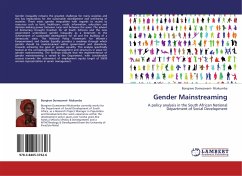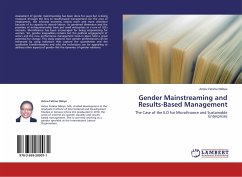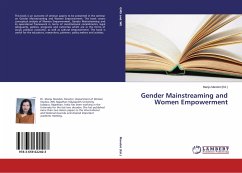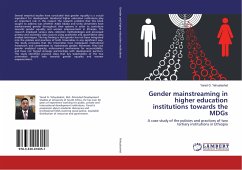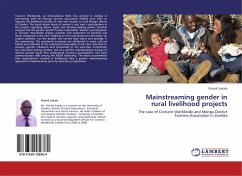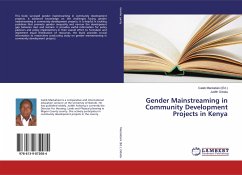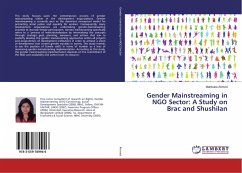Gender inequality remains the greatest challenge for many societies and this has implications for the sustainable development and well-being of societies. There exists gender inequalities with regards to access to resources such as land, healthcare, credit, information, education and decision-making power between races and between the sexes. The advent of democracy brought freedom for all South Africans and the new government understood gender inequality as a deterrent to the achievement of sustainable development for all and the building of a democratic state. The National Policy Framework for Women s Empowerment and Gender Equality provides a roadmap through which gender should be mainstreamed within government and elsewhere, towards achieving the goal of gender equality. This analysis specifically looked at the conceptualization, management and structures in place for gender mainstreaming. The findings indicate that the implementation of gender mainstreaming is varied in the Department, with considerable success towards the attainment of employment equity target of 50/50 women representation in senior management.

